Four languages, four cultures – one country
Four official languages are spoken in Switzerland. This multilingualism is a major asset for Switzerland and its people. Yet linguistic and cultural diversity cannot be taken for granted – it must be nurtured. This year's edition of Plurilingualism Week will once again raise awareness of this fact.
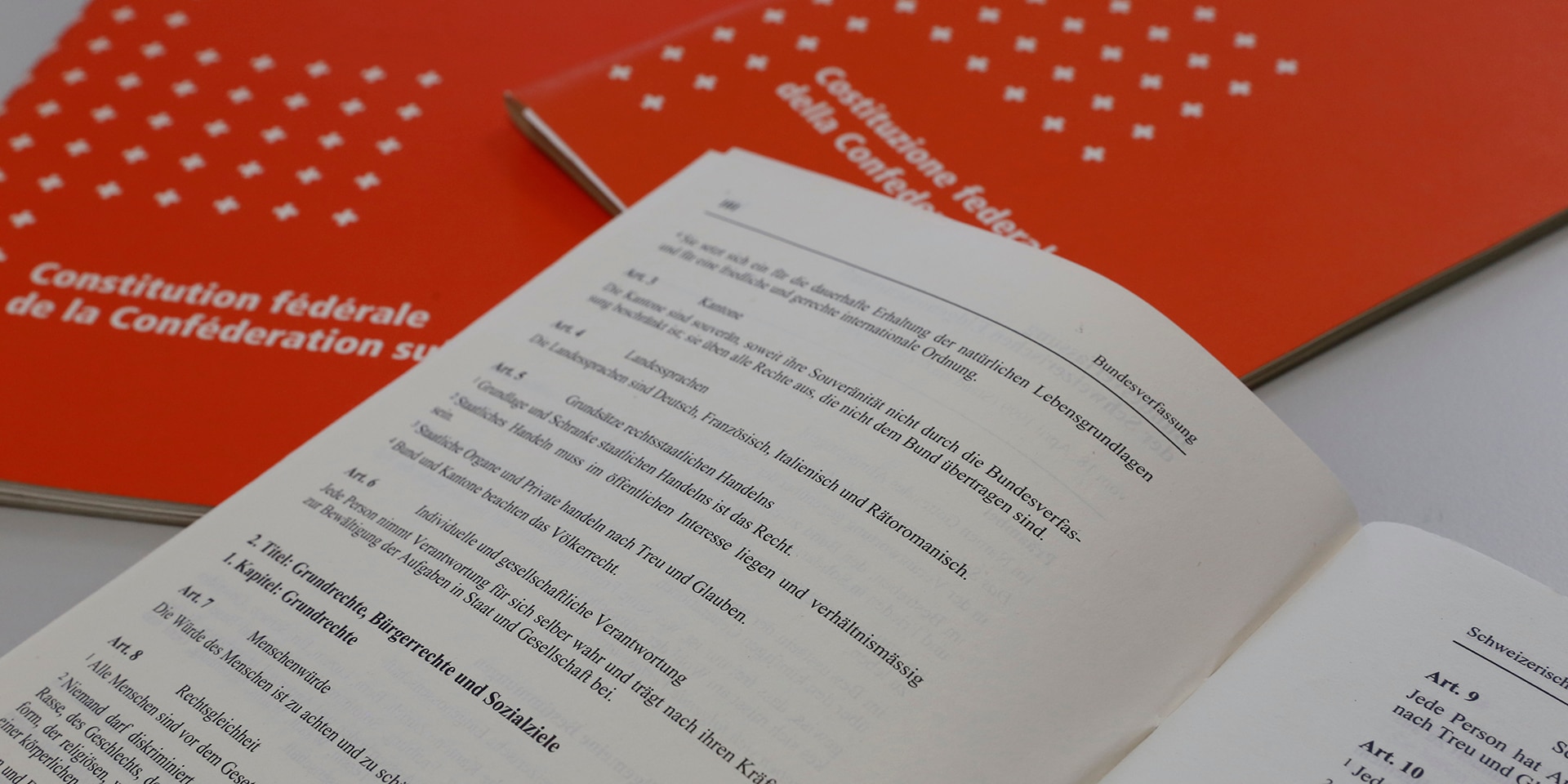
Article 4 of the Federal Constitution lists Switzerland's four national languages: "The national Languages are German, French, Italian, and Romansh." © FDFA
If you take a train to Ticino from 'Gleis 8' (platform 8) in Basel, you'll step off the train on 'binario 2' in Lugano. The train journey to Geneva from Scuol-Tarasp railway station in the Lower Engadine starts from 'binari 1' and arrives a few hours later on 'voie 2' in Geneva.
A single nation with four national languages is not a matter of course. Multilingualism also entails the risk of divisions and wall-building between language communities. In certain countries where more than one language is spoken, linguistic diversity hampers communication and fuels existing divisions, sometimes leading to violent disputes.
This is not the case in Switzerland: "Switzerland is a united nation, forged from linguistic and cultural diversity, with freedom as its unifying value," said Federal Councillor Ignazio Cassis on being elected to the Federal Council. He added that he would now be the blacksmith who would help weld the country even closer together. Multilingualism is a treasure that requires constant nurturing.
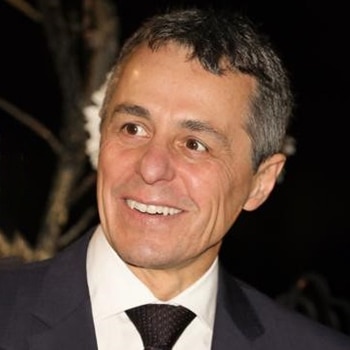
«Als Angehöriger einer sprachlichen Minderheit weiss ich, wie es ist, bei der Arbeit nicht seine Muttersprache sprechen zu können. Bei den Bundesratssitzungen muss ich Deutsch oder Französisch sprechen, wenn ich will, dass die anderen Bundesräte wirklich alles verstehen, was ich sage (und auch dann ist es nicht immer der Fall!). Wenn ich mit Medien aus der Deutschschweiz oder der Romandie spreche, kann ich nicht die gleiche Genauigkeit haben wie in meiner Muttersprache. Es geht aber nicht nur um die Sprache, denn jede Sprache bringt eine Kultur, eine Weltanschauung, andere Perspektiven mit sich. Allzu oft wird vergessen, dass das Zusammenleben von vier verschiedenen Kulturen innerhalb eines einzigen Landes zwar keine einfache Angelegenheit ist, aber auch eine unglaubliche Chance darstellt.»
Federal Councillor Ignazio Cassis on 27 November 2019 at a symposium at the University of Zurich on the promotion of the Italian and Romansh languages in Switzerland.
Multilingualism offers great potential
One of the reasons Switzerland's languages must be nurtured is that they are distributed differently across the country. In a survey conducted in 2018, around 62% of Switzerland's inhabitants stated that German or a Swiss German dialect was their primary language. Just under 23% are French speakers and 8% speak Italian or one of the dialects spoken in Ticino or Graubünden.
According to the Federal Statistical Office, Romansh speakers account for 0.5% of Switzerland's population. Given these very large differences in the relative sizes of Switzerland's language communities, one might easily forget that all four languages are enshrined in the Federal Constitution (Art. 4): "The National Languages are German, French, Italian, and Romansh." The languages are not ranked.
So what can be done to ensure that linguistic diversity does not become a source of misunderstanding but rather a glue binding society together? An awareness of the situation of language minorities is essential. So is an awareness of the enormous potential benefits of multilingualism for a country and its people. This year's Plurilingualism Week, to be held in Bern, is a good example of this potential – and of the fact that multilingualism needs to be nurtured.
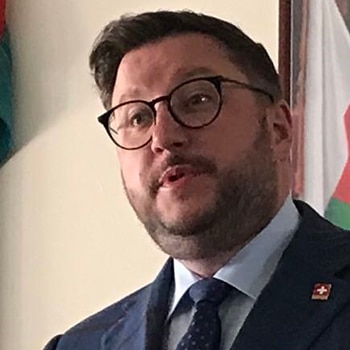
«Davo 11 mais ad Antananarivo n’haja chattà üna persuna chi imprenda rumantsch: üna bella pussibiltà per üna baderlada. Rumantsch es mia lingua materna, eir sch’eu tilla n’ha imprais da meis bap. Mincha jada ch’eu sbrat üna cartulina da visita n’haja la pussibiltà da spiegar a’ls malagas cha la Svizra ha 4 linguas naziunalas: sün quellas sun nempé stampadas tuottas quatter. Per mai es quai ün dals fats chi contribuescha all’identità svizra e crea ün’admiraziun da meis contacts. Suvent sun eu il prüm inscunter rumantsch in lur vita.»
Chasper Sarott, Swiss Ambassador to Madagascar
Opening doors to other cultures
Switzerland has all the right ingredients: a language policy that seeks to promote multilingualism and understanding between the language communities, as well as institutions that are committed to linguistic diversity. And also: "respect for the opinions of others", as Mr Cassis underscored in September 2017. Respect is a precondition for people with different viewpoints to be able to voice their opinions and contribute insights from their own cultural experience.
Why do German speakers say 'Lebensgefahr', French speakers 'danger de mort', Italian speakers 'pericolo di morte' and Romansh speakers 'privel da vita'? These subtle cultural differences reveal themselves through direct exchanges. Those who are willing to engage with people of different backgrounds will learn a great deal – about others, about their country, and about themselves.
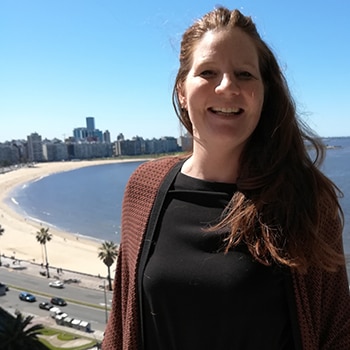
«Uruguayer/innen nehmen oft Bezug auf ihre europäische Herkunft. Familien- und Ortsnamen zeugen davon – zum Beispiel die Stadt Nueva Helvetia, in welcher noch heute stolz die Schweizer Kantonswappen neben die Haustür gehängt werden. Schweizerdeutsch, meine Muttersprache, spricht man dort jedoch schon lange nicht mehr. Vielleicht liegt dies auch an der sehr unterschiedlichen Aussprache die beiden Idiome. Ich übe mich weiterhin an der Aussprache der verschiedenen «r». Im Gegenzug dürfen Uruguayer/innen gerne «vieräzwänzg» (24) formulieren (versuchen).»
Martina de Kaenel, local employee at the Swiss embassy in Montevideo, Uruguay
Linguistic diversity in the FDFA
This is no less true within the FDFA. The FDFA strives to ensure that speakers of Switzerland's four language communities are distributed fairly across the department. We are still some way from the set targets, but the number of Italian-speaking staff is steadily moving closer to the FDFA's goal. The department also upholds the principle that all employees should be able to speak in their own national language. This is why meetings and conference calls are often held in several languages.
In addition, language courses are available for FDFA staff to provide them with at least a passive knowledge of the other national languages. Finally, in line with the federal policy of promoting multilingualism, the Federal Delegate for Plurilingualism monitors the implementation of the Languages Act and the Languages Ordinance.
For Cassis, it is a matter of personal concern that Switzerland's four official languages enjoy equal status. He underlines this commitment in his visits to all parts of Switzerland and in his regular official meetings with representatives from Ticino and the Italian-speaking community in Graubünden. A further meeting with the governments of Graubünden and Ticino is scheduled for 28 September 2020.
On 24 September, Mr Cassis met with a group of FDFA interns to discuss the issue of multilingualism within the FDFA. The meeting was also an opportunity to exchange notes on various idiomatic expressions used in Switzerland's four languages.
Mr Cassis then attended the launch of Ün viadi e 4 servezzans - 4 piccioni con una fava - D'une pierre 4 coups - 4 Fliegen mit einer Klappe (4 birds with one stone), a book that compares and celebrates idioms used in Switzerland's four language regions.
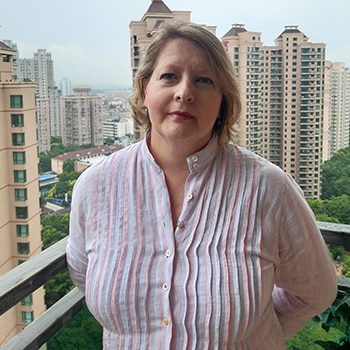
«Non solo spaghetti! Sono trascorsi 5 anni da quando sono arrivata in Cina con la mia famiglia. Siamo tutti italofoni, pertanto parlo italiano tutti i giorni e così mi sento sempre a casa. Incontrare in Cina persone che conoscano l'italiano non è facile. La Settimana della lingua italiana nel mondo, desta interesse ma è purtroppo una goccia nel mare. Le occasioni per parlare la mia lingua materna sono quindi in famiglia, con alcuni colleghi e pochi conoscenti. Le affinità tra la cultura italiana e quella cinese sono a mio parere molteplici. Il gusto per il bello, i legami famigliari, l'amore per la buona tavola, e non da ultimo quella per gli spaghetti, accomunano le due culture.»
Daniela Ziliotto, Swiss consulate general in Shanghai
Open to the world thanks to its four national languages
An awareness of the importance of multilingualism in our own country goes hand in hand with an openness to the rest of the world. Switzerland has some 170 representations worldwide. As Switzerland's official languages are not a national language in most of the countries where Switzerland is present, the FDFA emphasises intercultural dialogue in its training of diplomatic, consular and international cooperation staff.
Swiss representations also employ around 2,300 local staff – generally nationals of the countries where the representations are located. Local staff enrich the FDFA linguistically and culturally and help Switzerland communicate more effectively with its partner countries. Switzerland benefits considerably from this.
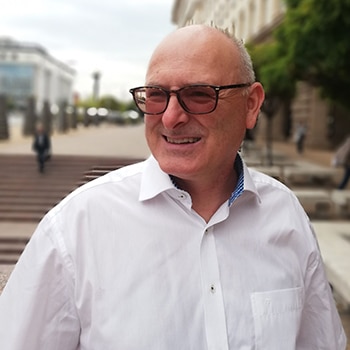
«Echanger dans ma langue maternelle avec des collègues roumaines et roumains est un privilège. J’ai la chance que de nombreux partenaires s’expriment parfaitement en français. Ces échanges accroissent mon sentiment d’appartenir à une même communauté. La nuance des mots bien comprise enrichit la conversation d’émotions. L’humour est plus facile et il colorie la discussion. Les différences culturelles deviennent des atouts qui nous rapprochent. Et l’intérêt de l’autre de converser dans ma langue maternelle m’apparait comme une faveur, une marque de sa volonté de me comprendre. Des moments que j’affectionne particulièrement.»
Roland Python, head of Swiss contribution office, Bucharest
